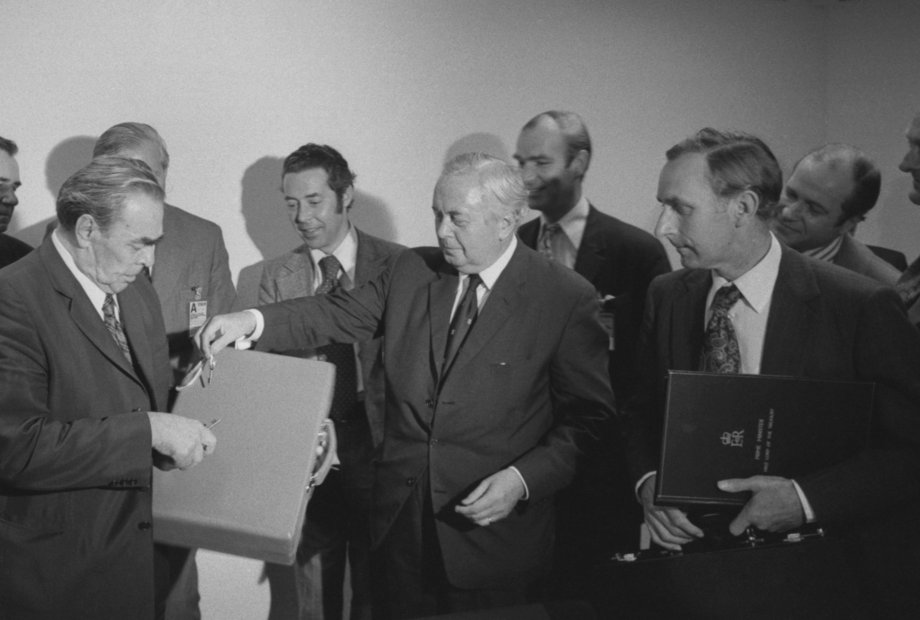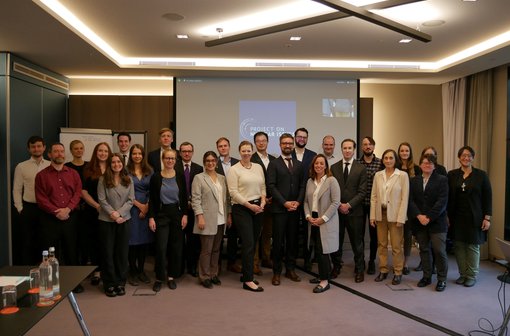This year marks the fiftieth anniversary of the Helsinki Final Act (HFA). Amid Russia’s attempt to destroy Ukraine and the risk of war between Russia and NATO, it is tempting to turn to the HFA for guidance on dealing with Moscow. Yet while the agreement and its enduring principles played a pivotal role during the Cold War, drawing analogies with the past can be misleading.
On 1 August 1975, heads of state and government signed the agreement in Helsinki, following negotiations within the Conference on Security and Co-operation in Europe (CSCE), launched in 1973. At the core was a compromise: Western states recognized the territorial division of Europe in exchange for Soviet concessions on human rights.
By puncturing the Iron Curtain and exposing communist regimes to pressure from dissidents, the Helsinki process contributed to ending the Cold War. The ten principles of the HFA (the Decalogue) – among them the inviolability of borders, also enshrined in the 1945 UN Charter – continue to hold weight. Nevertheless, attempts to interpret the contemporary relevance of the HFA must be wary of three potential fallacies.
Cooperative security?
First, the HFA should not be read as advocating a return to cooperative security with Russia. Cooperative security became a central goal of the CSCE’s successor, the OSCE, which in the 1990s envisaged a security community that would replace deterrence. The HFA was more modest, seeking to reduce the risk of war by complementing deterrence with détente.
Russia’s revisionism marks a sharp break from both the 1990s and 1975. Whereas Brezhnev sought to cement the status quo in Europe, Putin seeks to overturn it by force, making cooperative security unfeasible. A revisionist Kremlin also means that risk reduction will be more difficult than it was in 1975 – although some space for risk mitigation remains, even in war.
A new treaty?
Second, the fact that the Helsinki process followed the Soviet-led invasion of Czechoslovakia offers little guidance now. The Kremlin has made clear that it will only accept a grand bargain that grants it a sphere of influence in Ukraine and a buffer zone inside NATO territory (see Russia’s 2021 draft treaties).
Russia’s aggression is not merely driven by a security dilemma – the perception that NATO threatens Russian security. While arms control might ease such concerns, the Kremlin’s motivations run deeper. Alongside regime survival, the strongmen in Moscow seek great power status. This toxic mix makes any attempt to reconcile CSCE/OSCE principles a dangerous gamble. Moscow would insist on privileging indivisible security (according to which a state should not increase its security at the expense of another state) over states’ sovereign right to choose their alliances freely.
Domestic = foreign policy?
Third, the HFA is of limited utility for denouncing Russian domestic repression. While it affirmed the importance of human rights, it made no reference to democracy – any mention of regime type would have been unacceptable to the Warsaw Pact in 1975 and entered the CSCE discourse only with the Charter of Paris in 1990. The relationship between domestic and foreign policy is also complex: democracies are often aggressive towards non-democracies, and autocracies are more likely to wage war under conditions such as personalized rule and revisionism – both present in Russia.
Moreover, calls for democratization provoke anxiety among rulers not only in Russia but also in other authoritarian OSCE participating States, such as those of Central Asia. In their efforts to isolate Russia and preserve the OSCE’s inclusive character, Ukraine’s supporters must retain Central Asia within the organization.
Even when directed solely at Russia’s human rights violations, the HFA is not the strongest tool available. It was revolutionary in asserting that respect for human rights is essential to inter-state peace, laying the ground for the OSCE’s concept of comprehensive security. Yet CSCE and OSCE human rights commitments are less comprehensive – and less legally binding – than obligations established under the United Nations.
Useful nevertheless
While the HFA is an imperfect guide for managing future relations with Russia, it still holds enduring value. The HFA reminds us that deterrence alone is insufficient, that internal and external aggression are often linked, and that international affairs must be governed by rules. Though unlikely to change behaviour, reaffirming contested norms in the face of breaches by Russia and other violators remains vital to guarding against their erosion.
Dr habil. Cornelius Friesendorf is Senior Researcher at IFSH and Head of the Centre for OSCE Research (CORE).





